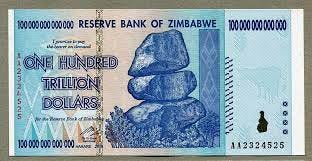People who look back on this time many years hence may notice some important reconfigurations of power and influence. One of them has to do with money. The international monetary system is in the midst of a big change, not simply because of the promotion of cryptocurrencies and the like, but also because the rise and fall of nations tends to be reflected in the power of their currencies and the trust they inspire; and trust in the USA has eroded, maybe permanently, or will do once inflation returns with a vengeance. The era of the dollar probably has a way to go, but one day it will end, just as its predecessor, British sterling, once retired with Lombard Street as the chief underwriter of globalisation.
It may be too soon to predict whose era will succeed the era of the dollar. The euro and China’s currencies still have many drawbacks. And more candidates may come along. For example, several African nations have begun efforts to develop regional currencies – a move that is viewed with some scepticism.
Will other regions get into the act? Will there be more regional central banks, like the European Central Bank, under the thumb of the strongest economic power in each region? Currency areas might proliferate as much as they consolidate. For every eurozone, a baht zone. But it is also tempting to imagine an Orwellian world in which each super-region – Oceania, Eurasia, Eastasia – mints a regional currency and pledges to do whatever it takes to ensure price stability forever.
Again, it’s too soon to say whether this is the wave of the future. It is one thing to point to a tiny country like Panama that uses the US dollar as its currency. It is quite another to note that many countries throughout the world are, or have been, effectively dollarised, which has little to do with regional economics, or politics, per se.
The more pertinent question to ask is whether the largest economies of the world will effectively coordinate their way out of what may become the biggest debt crisis in modern history. Or whether international monetary relations will come to resemble the collective effort at global vaccination now underway. Sauve-qui-peut for the post-dollar era is not a happy prospect.
In memoriam Robert Mundell, 1932–2021




